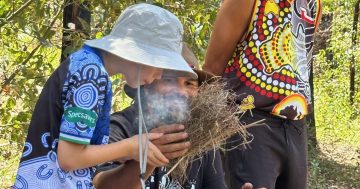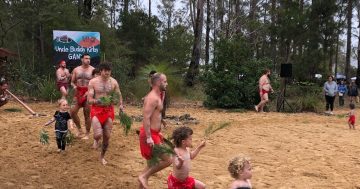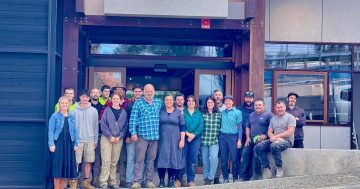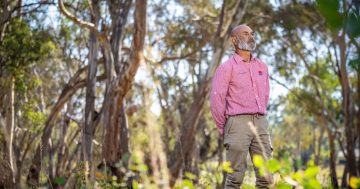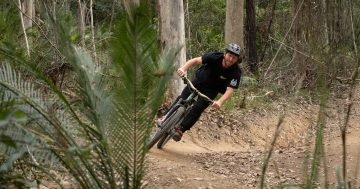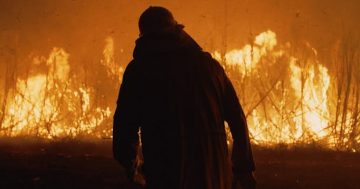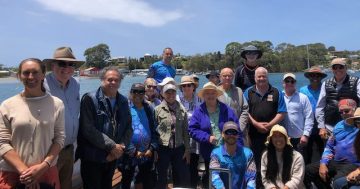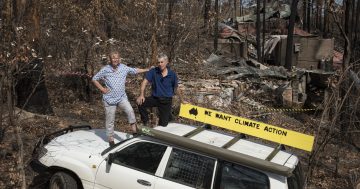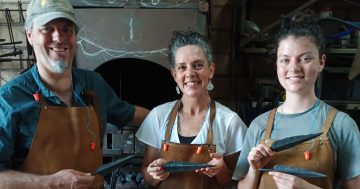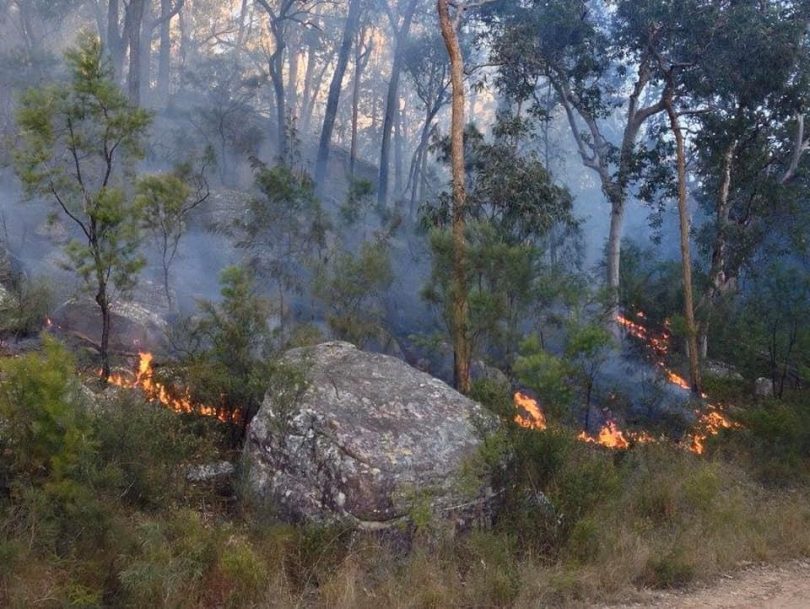
A cultural burn in action using thousands of years of Indigenous land and fire management expertise. Photo: Amanda Clymo.
Two capital region organisations will share almost $400,000 in government funding to harness thousands of years of Indigenous land and fire management knowledge and help communities better prepare for major bushfire events.
The collaboration between Indigenous and conventional land and fire managers is being supported by the Federal Government’s $200 million investment in bushfire recovery for wildlife and their habitat, part of its $2 billion National Bushfire Recovery Fund.
Thirteen grants have been announced, delivering a broad range of workshops, cultural burn demonstrations, community engagement and education, and the provision of further training resources across bushfire affected areas.
In the Eurobodalla, the ‘Sharing NSW South Coast Aboriginal Fire and Land Management Knowledge’ project in Batemans Bay is set to receive around $199,000.
Nine workshops will be run involving around 270 participants, including non-Indigenous landowners and government agency staff, to promote a better understanding of, and safeguarding and strengthening, traditional knowledge.
The project will select, train and mentor 12 Aboriginal cadets and involve them in communicating traditional practices with landowners and the wider public, including through a demonstration burn, followed by public workshops at each location.
The workshops will facilitate local conversations and support place-based solutions, and is being led by South Coast NSW Aboriginal Elders.
The project aims to meet demands from landowners and the wider community to better understand and apply traditional fire and land management methods following the Black Summer bushfires.
In Bungendore, more than $198,000 has been allocated to the Koori Country Firesticks Aboriginal Corporation for cultural burning workshops for Aboriginal youth.
Firestick Future aims to facilitate the sharing of cultural burning knowledge among Aboriginal youth and re-engage them with their country, culture and community. It will involve five face-to-face workshops in collaboration with traditional owners, cultural burning practitioners, education providers and participating private landholders; developing and launching a virtual workshop educational tool for outreach activities; and establishing cross-cultural social infrastructure to further cultural burning initiatives within the education system.
Minister for the Environment Sussan Ley said the Indigenous workshops would share knowledge about cultural burning practices, and the ways they can help with local land management and bushfire preparedness strategies.
“Increasing understanding of local landscapes, flora and fauna, and how these interact with cultural burning is an important part of the fire and land management conversation,” she said.
“Traditional owner groups will hold workshops across the country, sharing their knowledge with local land managers, local fire services and councils to identify different types of burns and the ideal weather conditions for protecting native flora and fauna during burns.
“This is about sharing knowledge and experiences. There are many ways we can help our local environment recover and help protect it in the future. These workshops will play an important role in that process.”
The projects are to be completed by April 2022.







